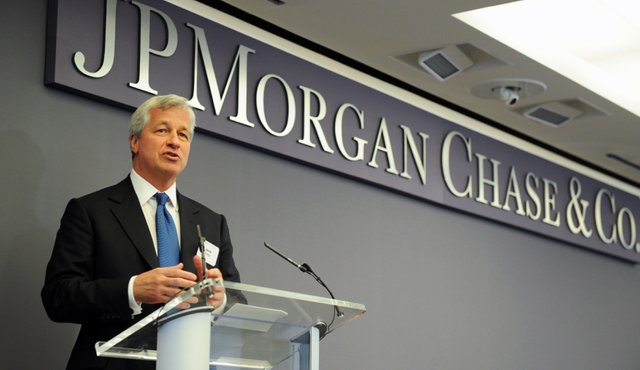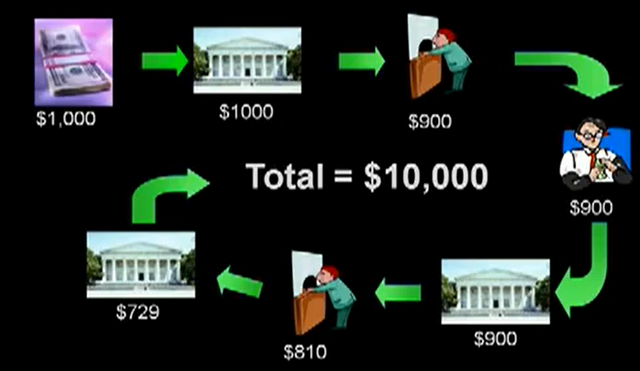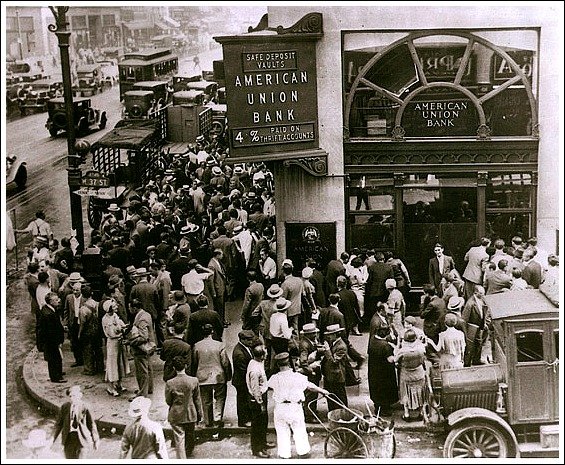Bitcoin Versus Banks!
Have you noticed that pretty much any big bank expert or financial institution leader has come out declaring Bitcoin to be a bubble, a scam, a Ponzi scheme, or just plain fraud? It's got to make you wonder, what is going on with the banks that they are so strongly opposed to this new form of currency?
Are the banks looking out for the hapless everyday middle-class family, protecting them from the pitfalls of cryptocurrency? Are they worried that Joe Average consumer might get scammed out of hard-earned income?
Most certainly not. Banks are businesses. The biggest business, in fact. And they make money from one thing: debt. Well, debt, and the fractional reserve system.
The fractional reserve system is complicated, but let me illustrate the basics of it to you. Imagine you deposit $1000 in the bank. By law, the average bank (there are exceptions) must keep 10 percent of your $1000 deposit in the bank in a "reserve". The bank is rewarded with interest for holding this money in reserve.
But here is the really important part. The bank can lend out the other 90% of that deposit, even though, technically, it is available for you to withdraw at any time. So, let's say another person borrows that $900 the bank is allowed to lend out. Now, in real money, the bank only actually has $100 for your $1000 deposit.
Crazy, right?
It gets way, way crazier.
Say that second person spends that $900 on a product. The business that receives that $900 now deposits that money in the bank. Guess what? The bank can now legally loan out 90% of THAT $900... so $810. Your original $1000 is literally making money out of thin air. This cycle can continue until your $1000 deposit has created literally thousands of dollars that DO NOT actually exist.
Now, there is yet another layer of insanity to this. You're not the only person depositing a mere $1000 or borrowing $910. Millions of people borrow billions of dollars from this system on a regular basis, most of which is money that has no actual backing to it. Most of this money being circulated is created out of nothing.
This can create a big problem. If everyone wanted to withdraw their deposited money at once, say in a severe financial downturn, the bank simply would not have the money. In this case, governments will normally make the money available through a complex system of insurance and loans. But the point is, the money isn't real. Also importantly, the value of the money inevitably diminishes over time, creating inflation - everything costs more because your money is worth less.
Now, take Bitcoin. Bitcoin can not be fractionally reserved. It can not be duplicated. It can not be used in this manner to create debt and, therefore, huge profits for banks. It is deflationary, meaning, it increases in value, whereas all fiat money is inflationary - it can only decrease in value due to this system and the fact that governments can print money by issuing, you guessed it - more debt.
Now do you see why big banks and financial institutions will loudly declare Bitcoin to be a fraud and to stay away from it? Maybe banks are not the best source of information for this sort of investment advice...
image source:
images.celebfamily.com/wp-content/uploads/2016/06/Jp-Morgan-Jamie-Dimon-.jpg
finalwakeupcall.info/en/wp-content/uploads/sites/2/2016/01/Fractional-reserve-banking1.png
madmikesamerica.com/wp-content/uploads/2012/08/great_depression_bank_run.jpg


